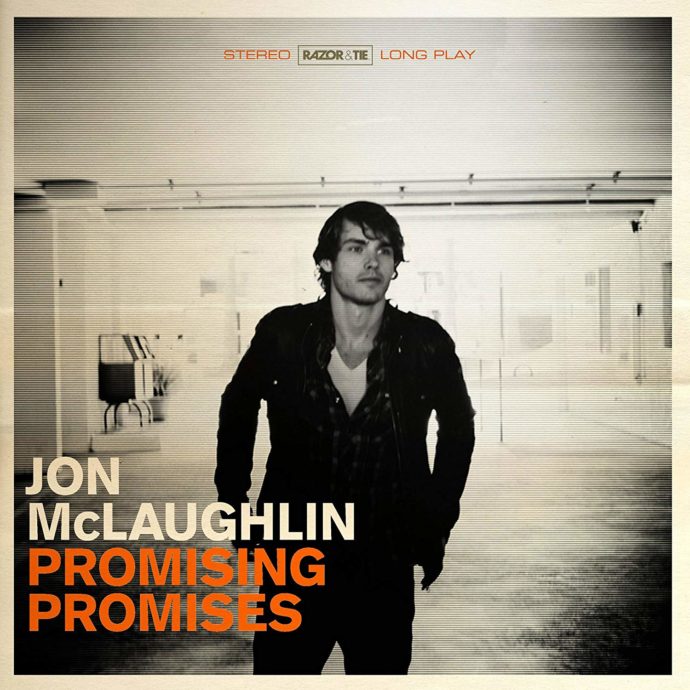By Cody Mello-Klein
Indiana-born singer/songwriter Jon McLaughlin’s most recent release, Promising Promises, is an interesting test for a reviewer such as me to tackle. As one who cherishes musicians who are unique and who seek to create interesting sonic landscapes this release was underwhelming. However, at the same time, McLaughlin’s musical prowess with both piano and lyrics was interesting in its own right. But I am getting ahead of myself here.
With Promising Promises, McLaughlin hopes to ride the wave of fame that he has amassed over the last few years with a constant barrage of pop-rock tunes, something that he has mastered at this point. Opening with the title track, McLaughlin clearly demonstrates his ability to write a great pop tune as the tune builds to a triumphant chorus that will not leave your head. However, with the standard fare of pop-rock instrumentation (bass, drums, piano, electric guitar) on display here this track, and many of those that follow, do not really stand out in any meaningful way from the current musical landscape. In other words, if I heard one of these songs on the radio and was not listening all that hard I would not be able to differentiate it from half the music on the radio.
However, that’s if I wasn’t listening. On the surface these tunes are mostly traditional pop-rock tunes, yet if you really listen closely something becomes apparent: McLaughlin is really quite a talented piano player and lyricist. Consistently, throughout this album, McLaughlin delivers great imagery in his lyrics (like in “Summer is Over”) and interesting, heartfelt, and complex piano parts (like on “What I Want” and “The Atmosphere”). Together these two aspects elevate, to a certain degree, this music above the standard pop tunes of today. The piano is consistently clear and crisp and oftentimes drives most of these tunes forward. In many ways it is in line with McLaughlin’s contemporary Sara Bareilles, who is featured on “Summer is Over,” in that the piano clearly has been placed at the center of the mix and the song.
McLaughlin’s embracing of his influence with Sara Bareilles is quite interesting and really shines through on his duet with her in “Summer is Over,” one of the only tracks that really stood out for me after listening all the way through this album. Their voices meld together nicely and really create an interesting dynamic and dialogue between two separated lovers.
However, the most standout track here is clearly “I’ll Follow You,” which ditches that standard pop-rock instrumentation in favor of a more stripped-down, intimate approach. On an album in which most songs blend together in a formless goop of pop-rock choruses, this a breath of fresh air, allowing McLaughlin to really shine in a heartfelt way. Recalling R.E.M.’s “Nightswimming,” the piano swells and dips along with his vocals, which really display his range, going from the highs in the chorus to husky lows in the verse.
And this is what really irked me about this album, ultimately. It is clear that McLaughlin has talent and could, if he wished, branch out into more experimental and interesting areas. However, on this release, with the exception of a few tracks, he relegates himself to the tired and tried pop-rock realm. Even his heartfelt, complex piano playing and better-than-average lyrics can not save McLaughlin from falling prey to the pitfalls and traps of the pop landscape. However, I would hesitate to count him out of this musical rat race, for there are a few “promising promises” on this album that reveal a truly talented artist within McLaughlin’s shell of convention.
Rating: 5.6/10

